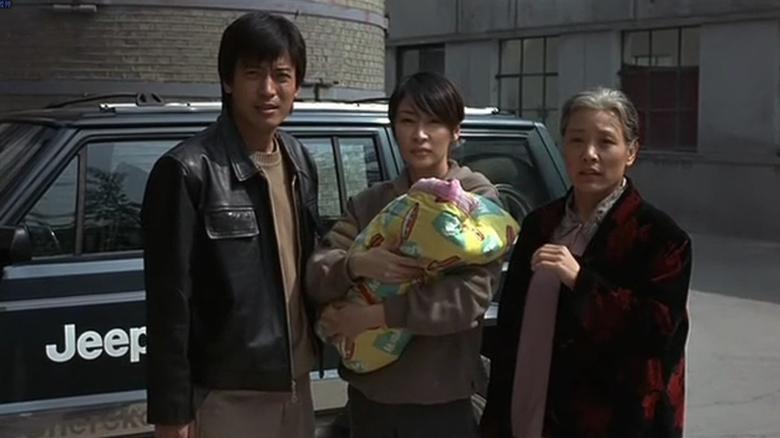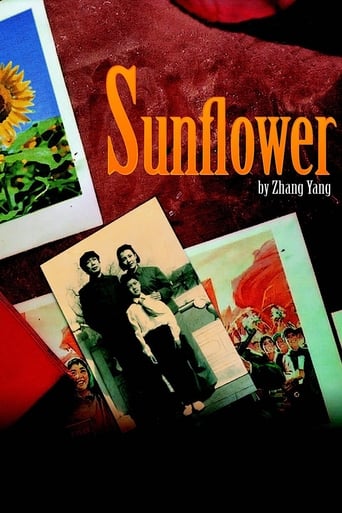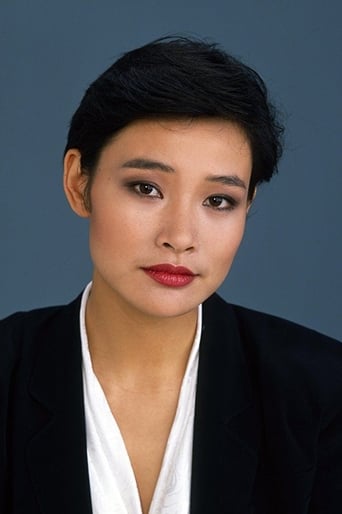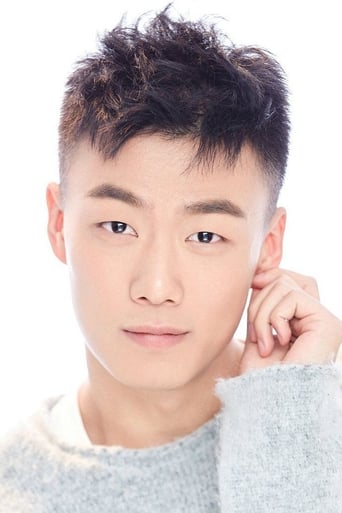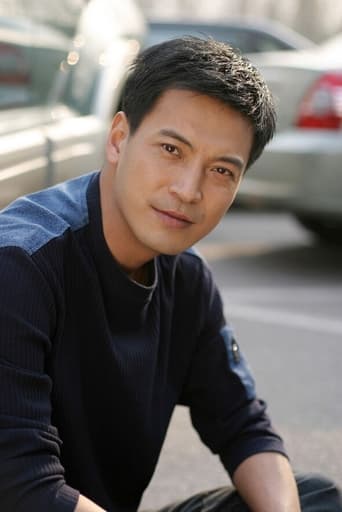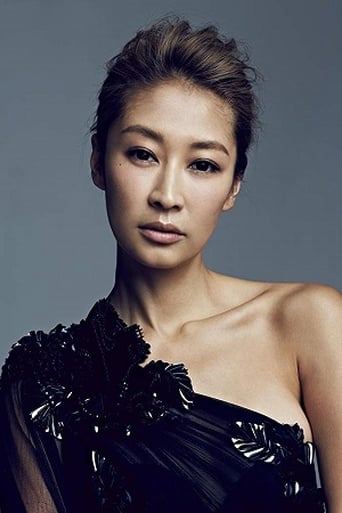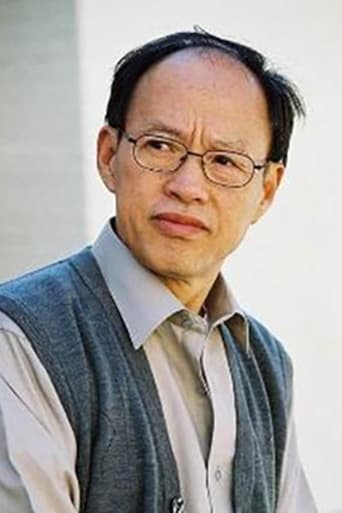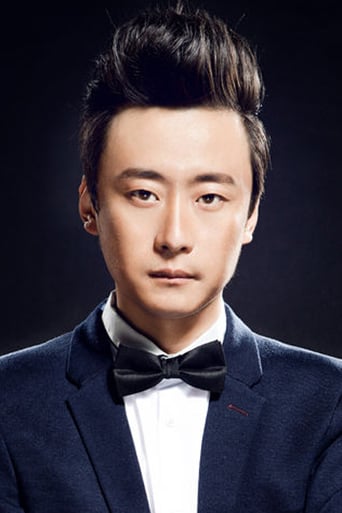Sunflower is the story of the Zhang family in Beijing father, mother and son across three decades, centering on the tensions and misunderstandings between father and son. Nine-year-old Xiangyang is having the time of his life, free of adult supervision until the day he meets the father he can hardly remember. Having spent years away, he returns with strong ideas about his son learning to draw. But Xiangyang chafes under his father's constant rules and soon stages his own revolution against the lessons enforced.
Reviews
One of my all time favorites.
How sad is this?
If the ambition is to provide two hours of instantly forgettable, popcorn-munching escapism, it succeeds.
This is one of the best movies I’ve seen in a very long time. You have to go and see this on the big screen.
There are two scenes in Sunflower, a rare Chinese gem of a film, that genuinely made me feel that 'choke' you get when you're seeing something in a film that you know emotionally affects you in some way. The scenes are simple and seemingly unexciting on paper: a girl ice-skating as a male admirer sketches her and an apparent stray cat 'returning' to where it once lived. But to have two scenes that are indeed so simple on paper work so well in a film and be able to get that reaction, is a great achievement. Part of the reason you get this reaction is because of what Sunflower does in the preceding events leading up to these scenes.I think to say this is the Chinese 'Forrest Gump' is a little too incorrect but immediately coming away from this film, it would be easy to label it so. Whereas Forrest Gump had a certain 'lack' of a father figure, it is the father figure that plays an important role in this film mostly in the opening third but it has an effect on events thereafter. Sunflower splits its narrative up into three chapters; something it borrows from American cinema, for sure, but it has that theme of 'authority' running through it throughout. Often this authority is channelled toward Xiangyang (who is portrayed by three actors at different ages) but the mother will also exercise her anger and authority when the family are turned down a flat for themselves and the father in question spends several months away at a Communist run camp in the 1960s a place where authority is rife and anger is taken out on its inhabitants. It is also because of this camp visit that makes the father so authoritarian toward his son as his artist 'living' is ruined and thus; wants his son to go down the route instead.It would not surprise me if the film was loosely based on some real experiences that the screenwriter might have gone through. The opening chapter takes place in 1967 where the film revolves around a nine year old Xiangyang and his struggling relationship with his father. During this segment, Xiangyang experiences an earthquake; a military coup following the death of a communist leader and an actual gathering in the town square featuring all the kids as they watch a film projected onto a makeshift screen. Such authenticity, especially the last example, and attention to detail as we have the world in which these character inhabit pointed out to us earthquakes and how they affect characters; the end of regimes and how the consequences of the celebrations can impact on them.With these three segments set during different years, we really get the feeling that time has passed because with the attention to detail such as the examples above, the atmosphere that various different things happen at various different times that do not further the plot help in the progression of character relationships. The second segment happens in 1976 and sees the greatest progression in its characters. The ice-skating scene is, as I've mentioned, one of the more beautiful scenes in the film for a number of reasons. Firstly, there is the framing which gets closer and closer to the figure as they skate and Xiangyang draws he is getting each detail he wants as we systematically see her in a closer fashion. What's more, the framing does not suggest he is watching her in a manner that represents the 'gaze' because it is impossible for a human being to see an item at one distance and then at a closer distance without physically moving something Xiangyang doesn't do. The music and poetic movement of the skater aids in the effectiveness of the scene.One of the more remarkable things about Sunflower is that it feels epic and this is without any cheap gimmicks or special effects. If the film has any sort of flaw, it is that the final chapter revolves around a domestic situation that is whether or not the couple that is Xiangyang and Xiuqing (Chen) should have a baby. This plot path feels a little familiar but it is supported very well by its constant theme of authority when the parents would like them to have a child. But, the disturbing undercurrent here is that they obviously are not able to realise their son is old enough to make decisions for himself. But the final third opens the eyes for other reasons: we are allowed out of the boundaries of the neighbourhood; we get glimpses of the big city and all the mise-en-scene that accompanies it such as motorways, skyscrapers and Xiangyang suddenly driving around in a jeep. It seems his artistic creativity has been furthered and a leak in a pipe adds to the series of outside agency events interfering with the character's lives. Sunflower is not your typical Far East production that relies on martial arts and beautiful cinematography like a Yimou Zhang film might nor does it resemble a John Woo film. Instead, Yang Zhang directs a touching and straightforward film that touches and captivates whilst remaining entertaining.
I recently watched this brilliant piece of cinema and was blown away by it. It takes us on a 30 year journey from a boy to man and his relationship with his parents, especially his father who was sent to a work camp during Mao's cultural revolution and returns when the boy is seven. From this point in time father and son clash as to what each one expects of the other. The interpersonal relationships between father and son, mother and son , husband and wife and the friendship between the father and his neighbour are just wonderful. This film shows us that throughout the world father's and son's encounter the same dilemma's and parents have the same worries about their children where ever they live in the world. Superb. Well worth watching. It is beautifully shot, the screenplay is great and the acting is fantastic. What more could you want.
To every son,father plays an important role in his life. To every father,son is his hope and imagine. When the father lost his own dream of drawing,he placed the unfinished dream to his son,with the faith that it's good for the son.However,the son didn't understand the father's doing.He was prevented from playing with his young fellow,and since then,it's hard to drop the hateness to the force from his father.The huge changes of the China society is clearly expressed throughout the movie.Every Chinese family was developing contemporarily.The father and the son were growing up as well.But the relationship between the father and his son,is still complicated.The love is always companioned with pain.Maybe everybody has a similar experience with this.It is said that the inspiration of the movie at first come from a letter from the director's father.The letter used to make the director and all the crew cry.Watching the movie,I could appreciate the sincere heart of the director,especially during the portray of the childhood.The movie was both opened and ended with sunflowers,which,I think ,may mean the forever beautiful bless from the father to his son,his blood-linked imagine.The feeling of watching the movie,is just like that of browsing old pictures in a family album. Those memories are sweet as well as sad.When everybody understand each other,the parents' hair has become white,and the old architecture has been broken up.
The English Name for this movie is Sunflower. I saw this at the Toronto Film Festival.This was a thoughtful piece of work and is definitely worth a look for an insightful dramatic tale in a Chinese setting -- with both family and society as key themes. I hope more movies like this get made!The story takes us through the life of an urban Chinese family -- the father becomes the art teacher and disciplinarian for his 'want-to-have-fun-with-the-town-kids' son. In broad strokes, we see the clash of father-son wills as each tries to get his own way. But the conflict is born out of an emotional pain as father's hands were crushed purposefully during the cultural revolution -- to prevent him from drawing anymore. How much more awful can you get? As the movie fast-forwards through time, we see the broad strokes transform as both son and father grow and continue their journey through life -- more conflict, more of an interesting view on the life they're going through. The artwork in this movie speaks volumes. The Sunflower imagery is moving. I'm choking up as I write this.FAMILY: The director was present and commented how society is based on family, and hence how looking at family relationships really allows you to examine society. For some reason, the close-up look at a family worked really well for me. Very nuanced writing and direction.EVOCATIVE OF REALITY: The timing of the key story events rooted in recent history made this story really come alive for me. As society influenced the characters, the characters reacted to society. This really gave the story a fresh dose of reality and gave me what really felt like a true insider's perspective on a set of experiences growing up in China.For me, this story made me reflect on my own family, my own life, and force me to examine some choices I've made in my past. It was a tad long, but still worth the time.
Top Streaming Movies











